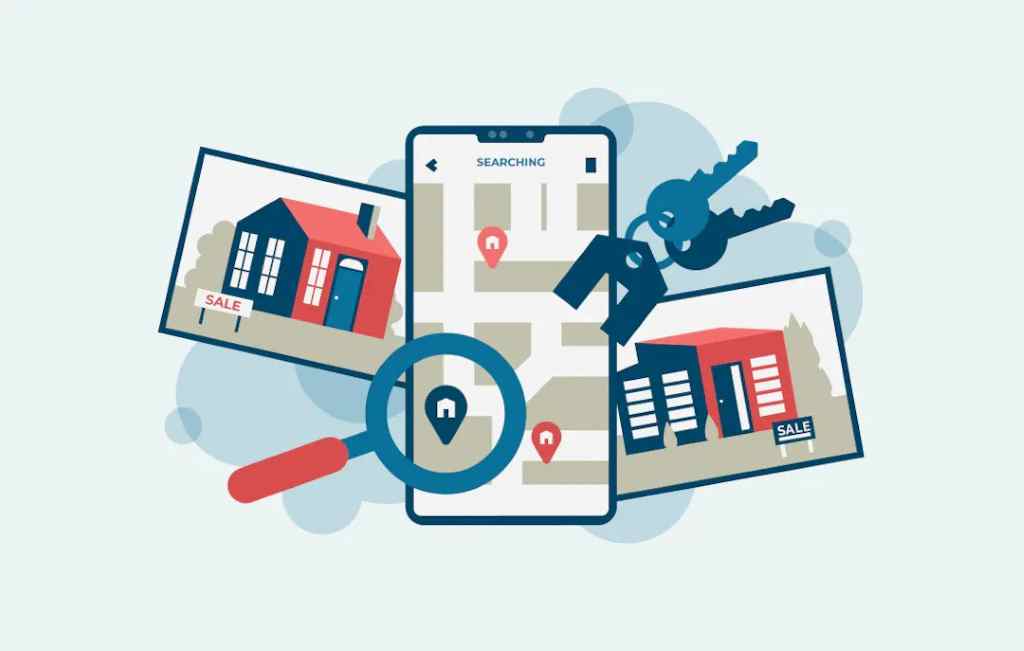The real estate industry is evolving rapidly, and technology plays a pivotal role in shaping its future. Custom real estate apps have emerged as essential tools for buyers, sellers, agents, and property managers. They streamline processes, enhance user experiences, and drive business growth. If you’re considering developing a custom real estate app, here are the must-have features to ensure its success:
1. Intuitive User Interface (UI) and User Experience (UX):
The foundation of any successful app lies in its UI and UX. A clean, easy-to-navigate interface with intuitive features is crucial. Users should be able to effortlessly browse listings, filter properties based on their criteria, and contact agents without any hassle.
- Key elements:
- Responsive design that adapts to different screen sizes and devices
- Streamlined navigation
- Clear call-to-actions (CTAs)
- High-quality images and virtual tours

2. Robust Property Search and Filtering:
Users expect a comprehensive property search function with advanced filtering options. Enable them to refine their search based on price, location, number of bedrooms, property type, amenities, and more. Consider integrating a map view for visualizing property locations, and add apps to the home screen for easy access.
- Additional features:
- Saved searches and alerts for new listings
- “Draw on map” feature to define custom search areas
- Integration with popular real estate listing platforms
3. Detailed Property Listings:
Each property listing should be a wealth of information. Include high-resolution photos, virtual tours, floor plans, property descriptions, neighborhood details, school district information, and nearby amenities. Ensure the data is accurate and up-to-date.
- Consider adding:
- Walk scores and transit scores
- Mortgage calculators
- Estimated property taxes
4. Agent and Agency Profiles:
Give agents and agencies a platform to showcase their expertise. Agent profiles should include contact information, professional biographies, client testimonials, and listings. This feature facilitates direct communication between users and agents, fostering trust and confidence.
5. Real-time Messaging and Notifications:
Enable real-time communication between users and agents through in-app messaging or chat. Push notifications can alert users about new listings, price changes, or messages from agents. This feature enhances engagement and streamlines communication.
6. Favorites and Saved Searches:
Allow users to save their favorite properties and searches for easy reference. This personalized feature simplifies their property hunt and keeps them engaged with your app.
7. Integration with Augmented Reality (AR):
AR is a game-changer in real estate. Offer AR-powered features that allow users to visualize how furniture would look in a space or get a sense of room dimensions. This technology adds a layer of interactivity and excitement to the property search experience.
8. Security and Data Privacy:
Prioritize user security and data privacy. Implement robust security measures to protect sensitive information, such as financial data and personal details. Adhere to all relevant data privacy regulations and be transparent about your data collection and usage practices.
9. Analytics and Reporting:
Integrate analytics tools to track user behavior, engagement, and conversion rates. These insights will help you refine your app, identify areas for improvement, and make data-driven decisions to optimize its performance.
Additional Considerations:
- Customization: Allow users to personalize their app experience with themes, preferences, and saved searches.
- Offline Access: Enable users to view saved listings and basic information even when they don’t have an internet connection.
- Gamification: Incorporate gamification elements, such as rewards and badges, to enhance user engagement.
Conclusion:
Developing a custom real estate app is a significant investment, but with the right features and a focus on user experience, it can yield substantial returns. By incorporating these must-have features and taking inspiration from the best apps for traveling on iOS and Android, you can create a powerful tool that empowers users, streamlines real estate transactions, and positions your brand at the forefront of the digital real estate landscape.




